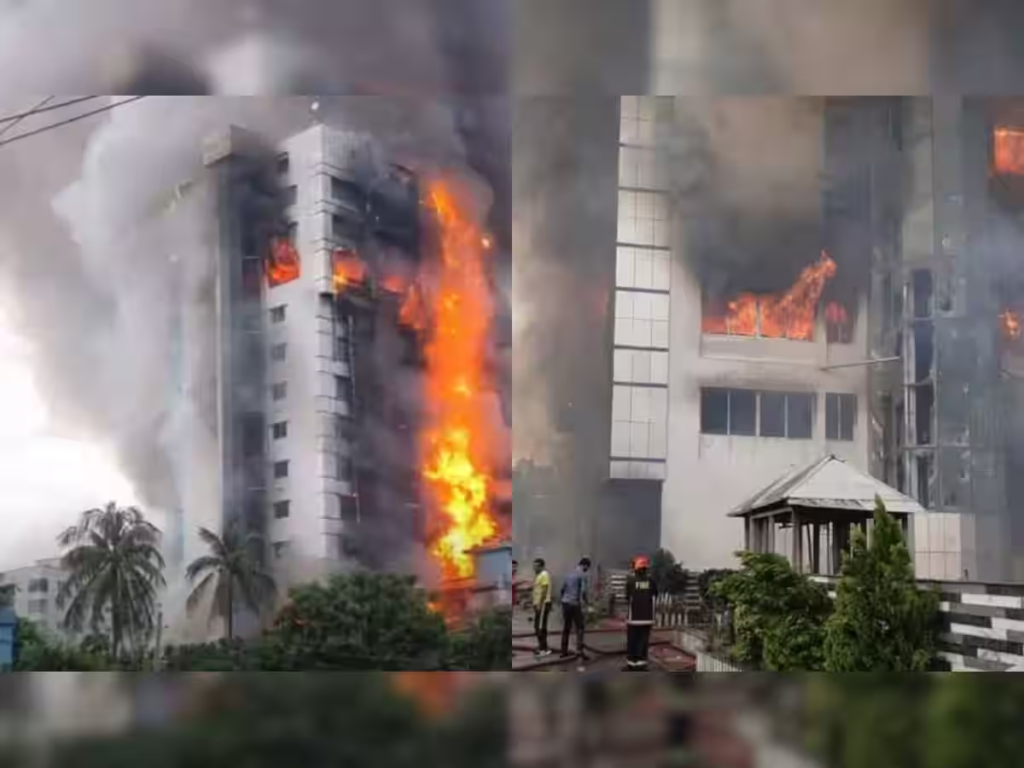In the latest escalation of the Bangladesh crisis, 24 people were tragically killed as a hotel was set ablaze. The violence did not stop there; Hindu homes and temples were also targeted, marking a severe escalation in the ongoing conflict. This article delves into the harrowing events that have unfolded, the historical context of the crisis, and the potential implications for Bangladesh’s future.

Historical Context of the Bangladesh Crisis
The current crisis in Bangladesh can be traced back to long-standing political and religious tensions within the country. Historically, Bangladesh has experienced periods of significant political instability, often characterized by violent clashes between different political factions and communities. The recent violence is a stark reminder of these deep-seated issues, exacerbated by current socio-political dynamics.
Timeline of Recent Events
The violence reached a new peak on August 6, 2024, when a hotel in Dhaka was set on fire, resulting in the death of 24 individuals trapped inside. Eyewitness reports suggest that the fire was deliberately started as part of a coordinated attack. The hotel fire is believed to be a retaliatory act linked to ongoing political disputes and community tensions.
Simultaneously, there have been numerous reports of targeted attacks on Hindu homes and temples across the country. These attacks have sparked widespread fear and condemnation from both domestic and international observers. The Hindu community in Bangladesh, which has faced historical marginalization, is once again under threat, leading to calls for urgent intervention and protection.
Key Figures and Responses
The response to the violence has been swift, with Prime Minister Sheikh Hasina condemning the attacks and promising stringent action against those responsible. International human rights organizations have also voiced their concerns, urging the Bangladeshi government to ensure the safety and security of all its citizens, particularly minority communities.
Nobel laureate Muhammad Yunus, known for his work in social business and microfinance, has also spoken out against the violence, calling for unity and peaceful resolution of conflicts. Yunus’s influence and calls for peace carry significant weight, given his respected status both within Bangladesh and globally.
The Role of the Interim Government
In light of the escalating violence, there have been renewed calls for the formation of an Interim Government to stabilize the situation. This proposed Interim Government would be responsible for overseeing the administration and ensuring a fair and transparent electoral process, amidst the ongoing unrest. The interim leadership, with figures like Yunus potentially playing a pivotal role, aims to restore public confidence and pave the way for peaceful elections.
Economic and Social Impact
The economic ramifications of the crisis are profound. The hotel fire and targeted attacks have disrupted daily life and business activities, leading to significant economic losses. Tourism, a vital sector for Bangladesh, is particularly hard-hit, with travelers now fearing for their safety.
Moreover, the social fabric of the nation is under strain. The attacks on Hindu homes and temples have deepened communal divides, fostering an environment of fear and mistrust. Efforts to rebuild this trust and promote social cohesion will be critical in the coming months.
Conclusion
The Bangladesh crisis has reached a critical juncture with the recent hotel fire and targeted attacks on Hindu homes and temples. The appointment of an Interim Government and the involvement of respected figures like Muhammad Yunus offer a glimmer of hope. However, the path to stability and peace is fraught with challenges. As Bangladesh navigates these turbulent times, the global community watches closely, hopeful for a resolution that upholds justice, unity, and peace.
For Regular News and Updates Follow – Sentinel eGazette
External Sources
- Hindustan Times: Bangladesh crisis – hotel fire and attacks
- BBC News: Bangladesh hotel fire
- Al Jazeera: Violence against Hindu community in Bangladesh
- The Guardian: Political unrest in Bangladesh
- Reuters: Bangladesh interim government proposal
- Financial Times: Economic impact of Bangladesh unrest
FAQs
1. What caused the recent hotel fire in Bangladesh?
The hotel fire, which resulted in the death of 24 individuals, was reportedly a deliberate act linked to ongoing political and community tensions in Bangladesh.
2. How has the international community responded to the crisis in Bangladesh?
International human rights organizations have condemned the violence and urged the Bangladeshi government to protect all citizens, particularly minority communities.
3. Who is Muhammad Yunus and what is his role in the current crisis?
Muhammad Yunus is a Nobel laureate known for his work in social business and microfinance. He has called for unity and peaceful resolution of the conflicts in Bangladesh.
4. What impact has the crisis had on the economy of Bangladesh?
The crisis has severely disrupted daily life and business activities, particularly affecting the tourism sector, leading to significant economic losses.
5. What measures are being proposed to stabilize the situation in Bangladesh?
There are calls for the formation of an Interim Government to oversee administration and ensure a fair electoral process, aiming to restore public confidence and pave the way for peaceful elections.